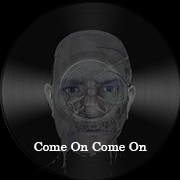Signals In The Air

Duration: 4m:27s
|
Voices of The Earth

Duration: 4m:27s
|
Devil At The Door

Duration: 3m:53s
|
Our Time

Duration: 3m:34s
|
I Won't Cry For You

Duration: 4m:26s
|
By The Hand

Duration: 3m:52s
|
Mothers Intension

Duration: 4m:26s
|
Going Under

Duration: 3m:52s
|
Come On Come On

Duration: 5m:57s
|
By The Hand

Duration: 3m:52s
|
By The Hand

Duration: 3m:52s
|
By The Hand

Duration: 3m:52s
|
By The Hand

Duration: 3m:52s
|
By The Hand

Duration: 3m:52s
|
By The Hand

Duration: 3m:52s
|
By The Hand

Duration: 3m:52s
|
By The Hand

Duration: 3m:52s
|
By The Hand

Duration: 3m:52s
|
By The Hand

Duration: 3m:52s
|
By The Hand

Duration: 3m:52s
|